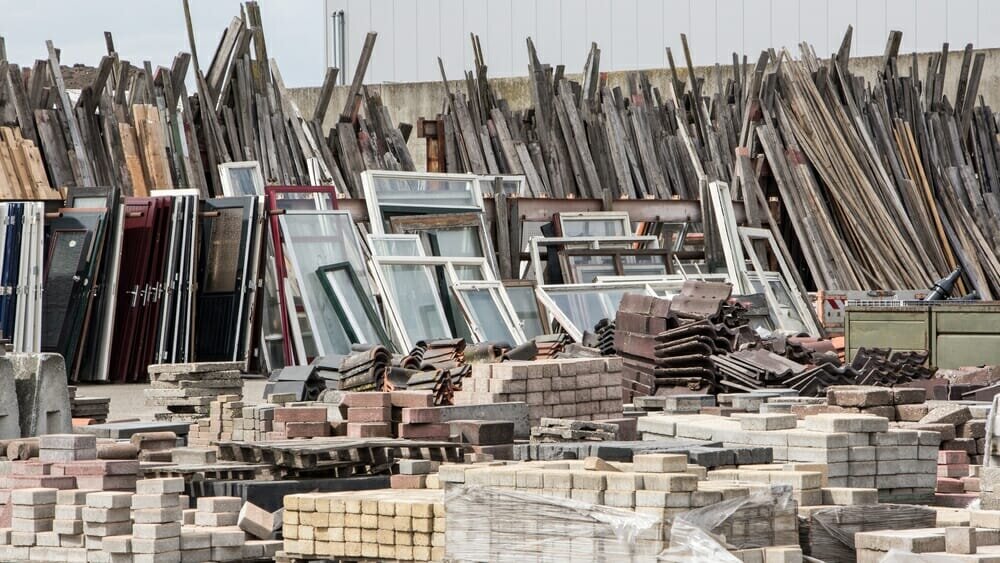With an industry worth more than £110 billion per annum and contributing 7% of the United Kingdom’s GDP, the construction industry accounts for approximately 3 million jobs – 10% of total UK employment.
But with great productivity, also comes great waste. The sector creates on estimate a third of the world’s waste with 100 billion tonnes of raw material extracted per year.
As the world population is expected to grow steadily over the next three decades, our planet’s resources will deplete beyond a level considered sustainable.
With this in mind, we suggest three products that can help construction firms embrace closed-loop recycling methods and level-up their sustainability journey.
Recycling balers
Get the best value from your materials with a dedicated baler used to press and compact recyclables like cardboard, plastics and paper into bales.
Balers provide clear fiscal benefits for businesses. Not only can they reduce the cost of storage space, handling and transport costs by compressing materials, they can also maximise the recyclable value of waste by compacting into neat, easily-transferrable piles.
Single-chamber balers are perfect for businesses with limited-space available but who generate medium to large volumes of waste.
Meanwhile, multi-chamber bases are more suited to businesses that generate multiple recyclable waste streams.
Finally, horizontal balers are a solution for managing very large volumes of recyclable waste and are capable of condensing a variety of materials – including waste plastics, paper and cardboard – into bales weighing up to 600kg.
Compactor
Similarly, waste compacted can take up less storage space and requires fewer collections. As an alternative to traditional skips, these are also a means of collecting recyclable materials for onward processing in line with closed loop principles.
Compactors are typically split into two varieties – portable and static.
Portable are typically smaller in size and are lifted onto a truck when full. Static meanwhile remain in place, bolted to a hard surface in your yard with a role-off skip attached.
With waste on average costing between £160-£500 per tonne to dispose of, this could be a smart choice for slashing your overheads while recycling materials back into circulation.
Roll packers
For some serious, heavy-duty waste compaction, roll packers can reduce large waste volumes in open, metal cages. Constructed with large metal drum and spiked teeth, these are specifically designed for crushing bulky items and can pack waste into neat ‘rolls’ suitable for collection.
Statistically, a well-chosen roll packer can reduce waste collections by 80% – saving the planet and your bottom line.
Discarded plastic and other types of waste usually headed for landfill can be used to produce fuel, while equipment that has reached the end of its natural life can be broken up and its components reused elsewhere.
Any waste metals could then be sold off, returning a tidy profit and ensuring that nothing truly would go to waste.
In time, this would save resources for the business in having to pay for the disposal of defunct equipment which can be offset against buying replacement equipment.
In helping to solve this problem, the engineering sector could make huge strides in the race to save the planet – and ensure a bright future for generations to come.
Sources
https://www.reconomy.com/products-services/single-stream-recycling/
Static vs Portable Waste Compactors – Which is right for you? – Landfill Alternatives
Reconomy-Recycling-Equipment-Brochure.pdf
The industry creating a third of the world’s waste – BBC Future







